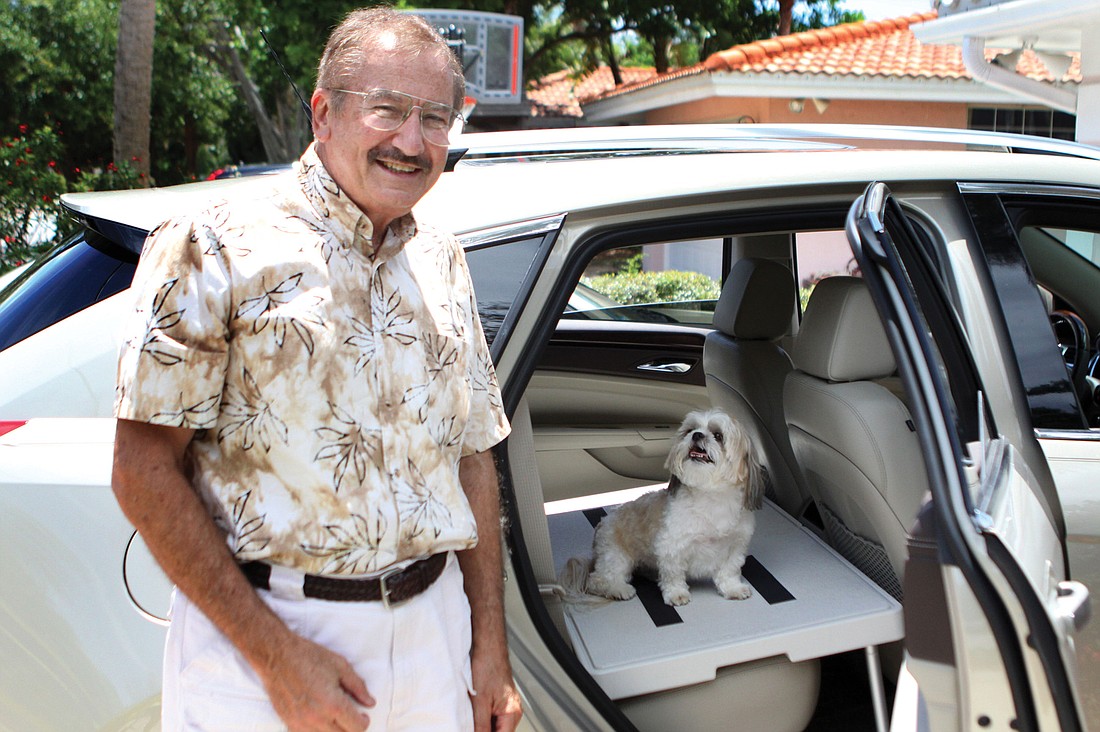- November 19, 2025
-
-
Loading

Joe Volpe has a brain that never sleeps.
“It’s dangerous to get bored,” says Volpe with a smile.
In 1966, with a degree in mechanical engineering from Carnegie Mellon under his belt, Volpe put that brain to work for Chrysler Motors. He was put in charge of race engine development and traveled all over the country with drag-racing teams.
Over the next 40 years, Volpe kept his own mental wheels churning, not only at Chrysler, but also as he started and ran four of his own companies: JR Engineering; Detroit Wheel and Tire; Detroit Hitch Company; and MV Software.
In 1996, Volpe and his wife, Lana, bought property on Siesta Key and became snowbirds. They spent part of the year in Detroit and the other part of the year in Florida — splitting their time between Fort Lauderdale and Siesta Key. They are now full-time residents.
The couple also traveled across the state with their two dogs: Prince, a lab, and Gizmo, a Shih Tzu. Though the Volpes enjoyed having their canine companions as part of their vacations, they noticed Prince had a difficult time riding in the car. Because of this dilemma, Volpe’s brain kicked into high gear and he worked out a plan to give Prince a more comfortable cruise.
Volpe started by experimenting with pieces of 2-foot-by-4-foot sheets of plywood to create a stable and flat surface so that Prince wouldn’t be rolling into the wheel well or sliding back and forth on the slanted backseats. The early prototype had kinks, but, given Volpe’s engineering background, design challenges didn’t put an end to the mission.
“I was curious to see if I could solve the problem,” he said.
He compiled his list of hurdles: making sure the contraption would not damage the car’s interior; that it would be able to handle a large amount of weight but still be light enough to carry; and that it could move when not needed.
Volpe continued to create prototypes, using his own furry family as well as his neighbor’s pooches as test subjects. He froze it and even baked it in an effort to make his product indestructible. And with each test, Volpe learned what he needed to add, take away and modify.
Eventually, he and his neighbors discovered his product had more than a canine purpose. The invention could benefit golfers whose clubs didn’t fit in regular car trunks. It would keep grocery bags stable on the ride home from the store. It could transport cakes and pizzas without the fear of grease and frosting basting the wheel wells.
Four years and a variety of patents later, he had a perfect prototype: The PetDek, also known as the CarDek. It was ready to be mass-produced.
Volpe’s intention was to produce his product locally — in the U.S. He searched Florida for a manufacturer. But, although the product may look simple, Volpe explained that many people underestimate the complexity of bringing a product to market, and Florida did not offer what he needed. Soon Volpe was connected with a company in Ogden, Utah, that was able to create the large “blow mold” needed for the PetDek.
Volpe hired a local marketing group and photographer to prepare his product for the market. Charlie, the Volpes’ Shih Tzu, became the product’s spokes-dog and No. 1 fan.
Volpe says if the product is successful in the U.S. market, he will want to expand, targeting the European market, in which cars are even smaller and could benefit from his portable product.
And, although pups throughout the U.S. will rest easy on their car rides, Volpe’s brain continues to rev — he’s always drumming up his next engineering project.
“It’s a mechanical engineering problem — a curse,” he says. “We just can’t let things go.”